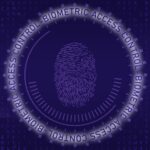 By Gerald L. Maatman, Jr., Tyler Z. Zmick, and Shaina Wolfe
By Gerald L. Maatman, Jr., Tyler Z. Zmick, and Shaina Wolfe
Duane Morris Takeaways: In White v. HungerRush LLC, No. 22-1206 (C.D. Ill. Mar. 28, 2023), the Court dismissed claims for violations of the Biometric Information Privacy Act (“BIPA”) brought against a company that sells point-of-sale technology for lack of personal jurisdiction. White serves as a reminder to businesses that personal jurisdiction in Illinois may be lacking where their conduct has only a tenuous connection to Illinois and/or where they do not “collect” or “possess” biometric data. This ruling – which is largely consistent with federal court decisions addressing the issue – is a rare win for companies facing BIPA class actions, and is a required read for companies facing privacy class action litigation.
Case Background
Plaintiff worked at a restaurant in Peoria, Illinois, which used a point-of-sale system sold by Defendant HungerRush LLC, a Texas-based company. While working at the restaurant, Plaintiff enrolled her fingerprint onto the point-of sale system as a means of clocking in and out of work. She later sued the Texas-based Company, claiming that it violated the BIPA in connection with its sale of the point-of sale system by (i) failing to develop a written policy made available to the public establishing a retention policy and guidelines for destroying biometric data, and (ii) collecting her biometric data without providing her with the requisite notice and obtaining her written consent.
In response to the complaint, the Company moved to dismiss on the basis that the Court lacked personal jurisdiction. In support of its jurisdictional argument, the Company submitted an affidavit signed by its Chief Administrative Officer and General Counsel.
The Company’s affidavit explained that: (i) it is a Texas-based company; (ii) it does not manufacture finger-scan devices or software; (iii) Plaintiff’s employer purchased a point-of-sale system from it and separately purchased a finger-scan device from a third-party; (iv) the finger-scan device operates independently from its software; and (v) finger-scan data is not transmitted to its point-of-sale software – instead, the finger-scan device sends only an approval signal to its software.
Based on these facts, Defendant argued that its limited contact with Illinois (i.e., selling a point-of-sale system to Plaintiff’s Illinois-based employer) was insufficient to establish personal jurisdiction.
The District Court’s Decision
The Court granted the Company’s motion to dismiss under Rule 12(b)(2).
First, the Court noted that “[w]here, as here, the defendant submits ‘evidence opposing the district court’s exercise of personal jurisdiction, the plaintiff must similarly submit affirmative evidence supporting the court’s exercise of jurisdiction.’” The Court explained that because Plaintiff failed to submit any evidence refuting the Company’s evidence, i.e. the sworn affidavit, the affidavit was considered “unrebutted.”
Second, the Court found that the Company’s unrebutted evidence demonstrated that it did not have sufficient minimum contacts with Illinois for this case and it was not reasonably foreseeable that Plaintiff’s claims related to the Company’s contacts with Illinois. Significantly, Plaintiff failed to submit any evidence refuting the affidavit’s sworn statements that Plaintiff’s Illinois-based employer initiated the transaction with the Company, that any contracts the Company makes with Illinois restaurants are made in Texas with Illinois restaurants reaching out to the Company, that the Company’s system has no cloud functions, or that the Company does not and has never manufactured a fingerprint scanner.
The Court held that because Plaintiff failed to offer evidence or adequate explanations refuting the Company’s sworn statements, she failed to meet her burden in establishing personal jurisdiction.
Implications For Employers
White serves as a reminder that companies must have sufficient contacts with the state in order for the courts to have personal jurisdiction over them. In other words, companies with only limited contacts with Illinois will not be subject to personal jurisdiction in courts within Illinois.
White also illustrates the importance of submitting extrinsic materials (e.g., sworn affidavits) in support of showing lack of personal jurisdiction. Significantly, once the defendant has submitted affidavits or other extrinsic evidence supporting lack of jurisdiction, the plaintiff must go beyond the pleadings and submit affirmative evidence supporting the exercise of jurisdiction. Moreover, courts can dismiss BIPA class actions for lack of personal jurisdiction based on supporting affidavits – even where the affidavits speak in part to the merits of the case. See Order & Op. at 8.





 By: Gerald L. Maatman, Jr., Jennifer A. Riley, and Alex W. Karasik
By: Gerald L. Maatman, Jr., Jennifer A. Riley, and Alex W. Karasik